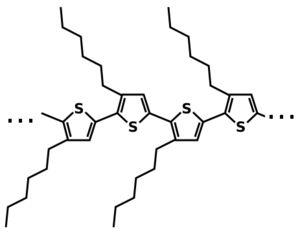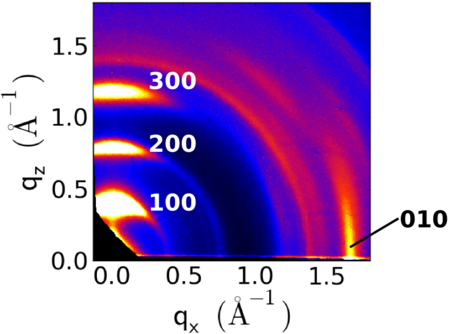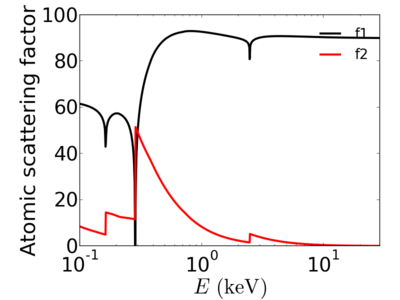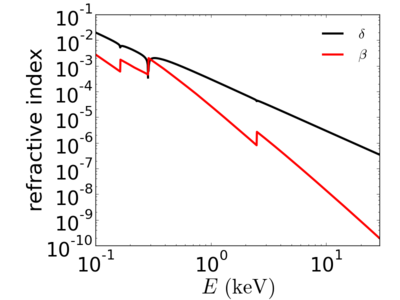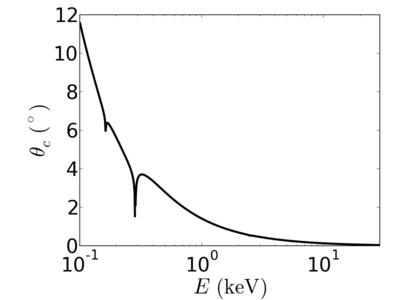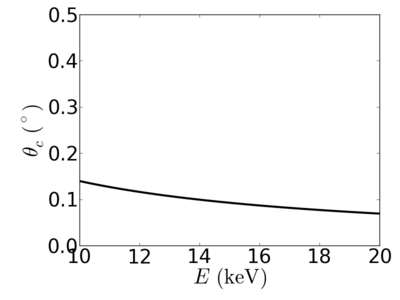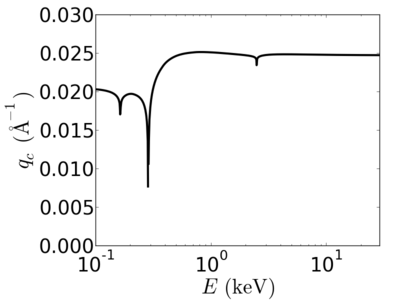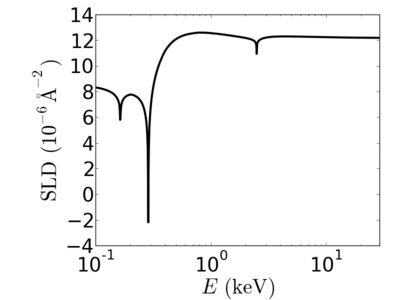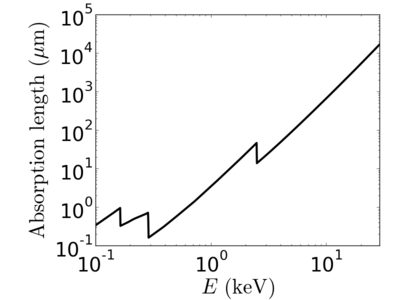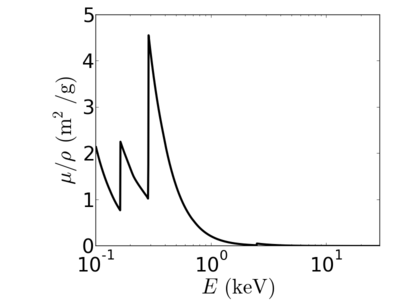Difference between revisions of "Material:P3HT"
KevinYager (talk | contribs) (→Scattering) |
KevinYager (talk | contribs) (→See Also) |
||
| (One intermediate revision by the same user not shown) | |||
| Line 88: | Line 88: | ||
==See Also== | ==See Also== | ||
* [http://en.wikipedia.org/wiki/Polythiophene Wikipedia: polythiophene] | * [http://en.wikipedia.org/wiki/Polythiophene Wikipedia: polythiophene] | ||
| + | * '''Electron Diffraction and unit-cell''': Martin Brinkmann, Christophe Contal, Navaphun Kayunkid, Tatjana Djuric, and Roland Resel [http://pubs.acs.org/doi/full/10.1021/ma101313m Highly Oriented and Nanotextured Films of Regioregular Poly(3-hexylthiophene) Grown by Epitaxy on the Nanostructured Surface of an Aromatic Substrate] ''Macromolecules'' '''2010''', 43(18), 7604-7610. [http://dx.doi.org/10.1021/ma101313m doi: 10.1021/ma101313m] | ||
| + | * Peter Müller-Buschbaum [http://onlinelibrary.wiley.com/doi/10.1002/adma.201304187/abstract The Active Layer Morphology of Organic Solar Cells Probed with Grazing Incidence Scattering Techniques] ''Advanced Materials'' '''2014''', 26 (46), 7692-7709. [http://dx.doi.org/10.1002/adma.201304187 doi: 10.1002/adma.201304187] | ||
Latest revision as of 15:30, 18 February 2015
Poly(3-hexylthiophene) (P3HT) is a polymer with chemical formula (C10H14S)n. It is a polythiophene with a short alkyl group on each repeat unit. It is noteworthy since it is a seminconducting polymer; it can conduct positive charges (holes). It is a common material for studies of organic electronics (e.g. FETs) and for organic photovoltaics (OPV).
Contents
Organization
P3HT typically organizes into a semi-crystalline state, with an idealized unit cell as shown below:
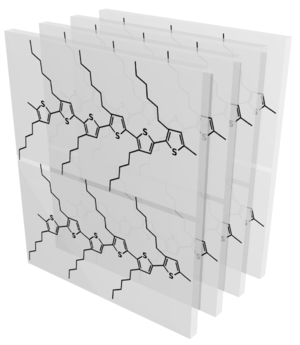
- The lamellar stacking has a spacing of ~1.6 nm, giving rise to a peak (100) at q ~0.4 Å−1.
- The aromatic (π-π) stacking has a spacing of ~0.39 nm, giving rise to a peak (010) at q ~1.6 Å−1.
- The spacing along the ring direction is too disordered to give a well-defined 001 peak.
Refer to P3HT orientation for details about the organization of P3HT.
Scattering
On flat substrates, P3HT typically organizes into an edge-on orientation, wherein the lamellar stacking direction is along the film normal (leading to the 100 peak being along qz), and the aromatic stacking then being in-plane (010 peak along qr).
Properties
- Density: ~1.33 g/cm3
- Neutron SLD: 0.817×10−6 Å−2
| Material | density (g/cm3) | X-ray energy (keV) | X-ray wavelength (Å) | critical angle (°) | qc (Å−1) | SLD (10−6Å−2) |
|---|---|---|---|---|---|---|
| P3HT | 1.33 | 2.0 | 6.20 | 0.700 | 0.0248 | 12.20 |
| 4.0 | 3.10 | 0.352 | 0.0249 | 12.33 | ||
| 8.0 | 1.55 | 0.176 | 0.0249 | 12.29 | ||
| 12.0 | 1.03 | 0.117 | 0.0248 | 12.25 | ||
| 16.0 | 0.77 | 0.088 | 0.0248 | 12.24 | ||
| 24.0 | 0.52 | 0.058 | 0.0248 | 12.2 |
See Also
- Wikipedia: polythiophene
- Electron Diffraction and unit-cell: Martin Brinkmann, Christophe Contal, Navaphun Kayunkid, Tatjana Djuric, and Roland Resel Highly Oriented and Nanotextured Films of Regioregular Poly(3-hexylthiophene) Grown by Epitaxy on the Nanostructured Surface of an Aromatic Substrate Macromolecules 2010, 43(18), 7604-7610. doi: 10.1021/ma101313m
- Peter Müller-Buschbaum The Active Layer Morphology of Organic Solar Cells Probed with Grazing Incidence Scattering Techniques Advanced Materials 2014, 26 (46), 7692-7709. doi: 10.1002/adma.201304187
